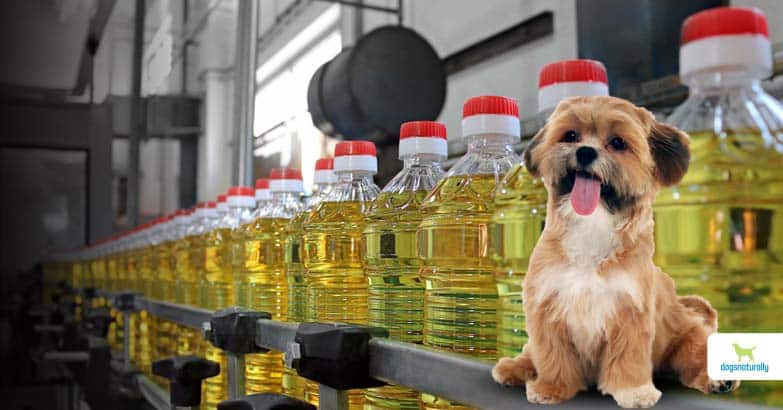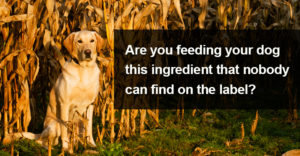Can dogs eat seed oils? Good quality fats are an essential ingredient in pet foods. But not all of the fats used by the pet food industry are good quality – and many are quite harmful.
Fatty Acids Dogs Need
There are only two fats (aka fatty acids, or oils) required for adult dogs: the omega 6 linoleic acid, and the omega 3 alpha-linolenic acid. Puppies additionally need the omega-3s EPA and DHA.
Linoleic acid (LA) is found in many plant and animal ingredients. Alpha-linolenic acid (ALA) is found in meat, poultry, and dairy products; and in a few nuts, beans, and seeds: flax, chia, hemp, soy, and canola.
It’s often claimed that ALA is converted in the body to EPA and DHA. However, this does not occur to any meaningful extent in dogs. They just don’t have sufficient metabolic pathways to accomplish the conversion.
LA and ALA are metabolized in the body into a variety of compounds. In general, LA tends to contribute to inflammatory pathways, while ALA has a more anti-inflammatory effect. Right away we can see that once the basic need for fat has been satisfied, we don’t want much more LA. Unfortunately, that’s not we find in dog food.
RELATED: Read more about omega fats for dogs …
Fats In Pet Food
Pet food is made largely from the leftovers and waste products of the human food industry. It contains similar ratios of ingredients. The ideal ratio of omega-6 to omega-3 fatty acids is thought to be around 5:1, or even less. But the American diet contains an overabundance of inflammatory fats, at 20:1 or even 30:1.
Can Dogs Eat Seed Oils?
Seed oils aren’t good for dogs … or people either. Vegetable and seed oils (eg, corn oil, safflower oil, sunflower oil) contain mostly LA. But it’s not just the pro-inflammatory properties of these oils that are problematic. It’s also how they’re produced.
This is usually done by solvent extraction using the petroleum product hexane. It’s cheaper, quicker and extracts more oil than expeller or cold pressing. To evaporate off the residual hexane, the oil is heated up to 300°F, which causes oxidation and formation of toxic free radicals and other by-products. Oxidized fats promote chronic inflammatory conditions and even cancer, particularly in the gastrointestinal tract.
“Used” Oils
Even worse for our pets are the “used” oils often incorporated in pet foods. Think of all the restaurants that deep-fry items like chicken nuggets, onion rings, and fries. When that oil gets too nasty to keep reusing, it’s dumped into 50-gallon barrels that are stored outside (in all weather) and picked up by renderers. The end product of that process is commonly sprayed onto kibbles to increase their sensory appeal to dogs.
Moreover, corn, soybean, and canola oil all come from GMO plants, so a load of toxic glyphosate comes along with them.
Even when pet foods include a good source of ALA like flaxseeds, by the time they are processed into pet food, their benefits have largely been degraded due to oxidation.
Rancid Fats
One study of avocado oils found that 15 out of 22 avocado oils purchased from local grocery stores and online not only contained other oils but were oxidized well before their expiration dates.
Adulteration
Another study looking at extra virgin olive oil found that oil mixtures of more than two kinds were common … including not only peanut or soybean oils, but also corn oil and canola oil.
Coconut oil is commonly adulterated with cheaper palm oil.
Poor Storage
Storage conditions, particularly time and temperature, have a great deal of influence; peroxides (free radicals) in oils increased, and antioxidant content decreased. Remember that used, already-rancid deep-frying oils are stored outside in all climates and weathers, which just makes a bad situation worse.
Pet food makers are far less picky, and routinely use rancid and adulterated vegetable and seed oils in dog food. Rancid oil is full of inflammation-causing oxygen free radicals, and is associated with heart disease, arthritis, digestive disorders, DNA damage, and degenerative diseases of aging.













